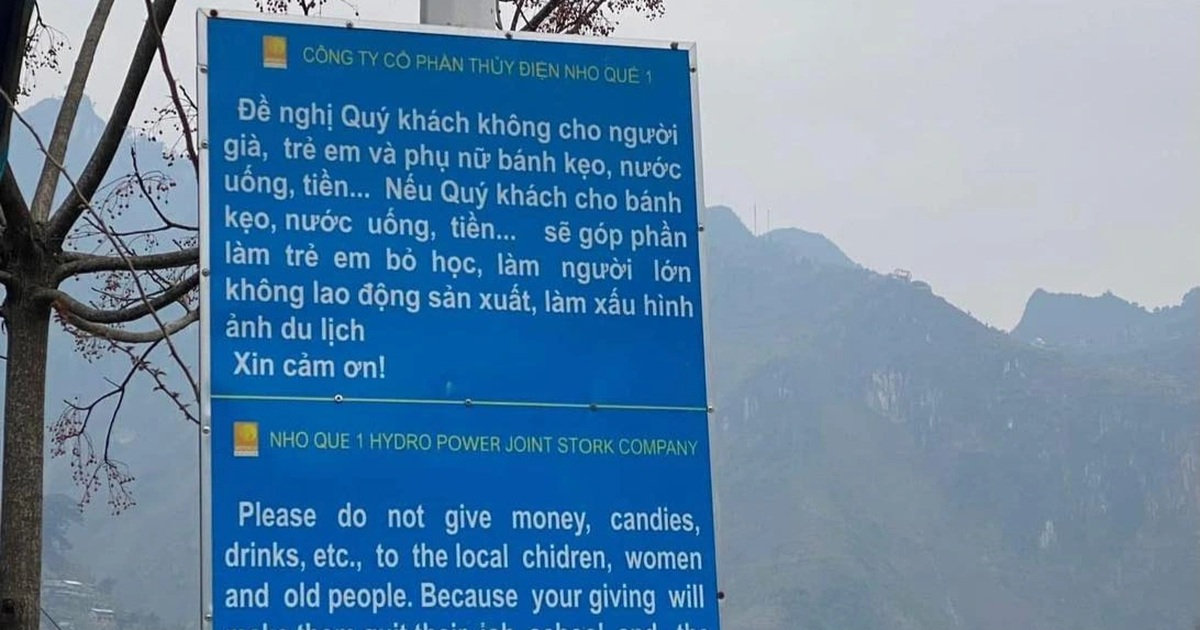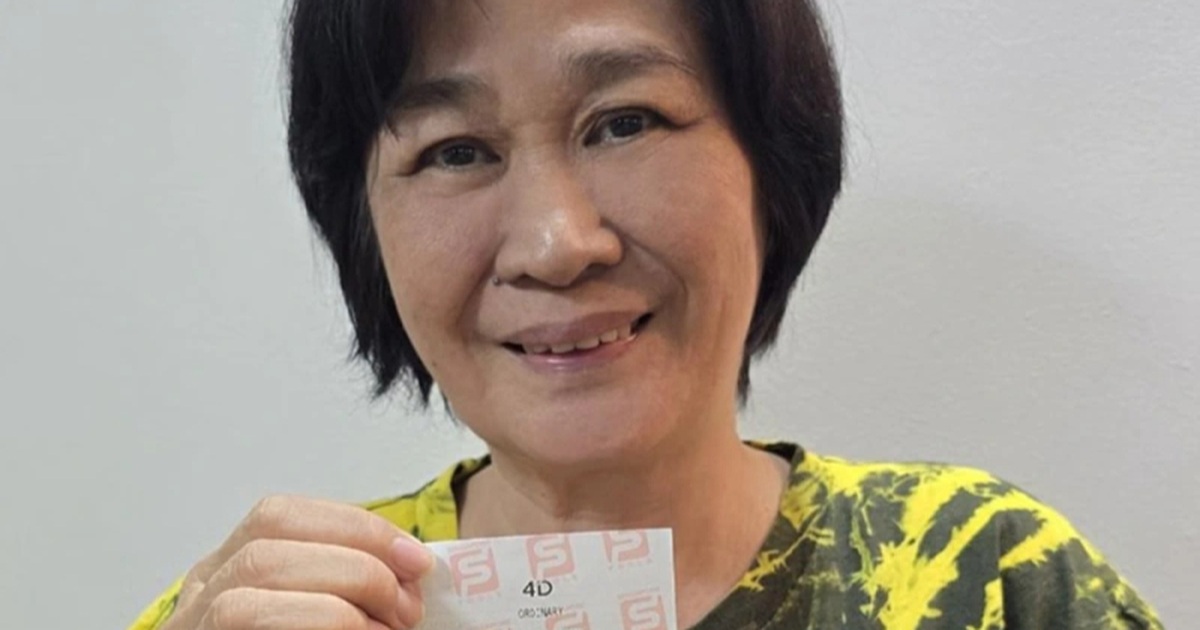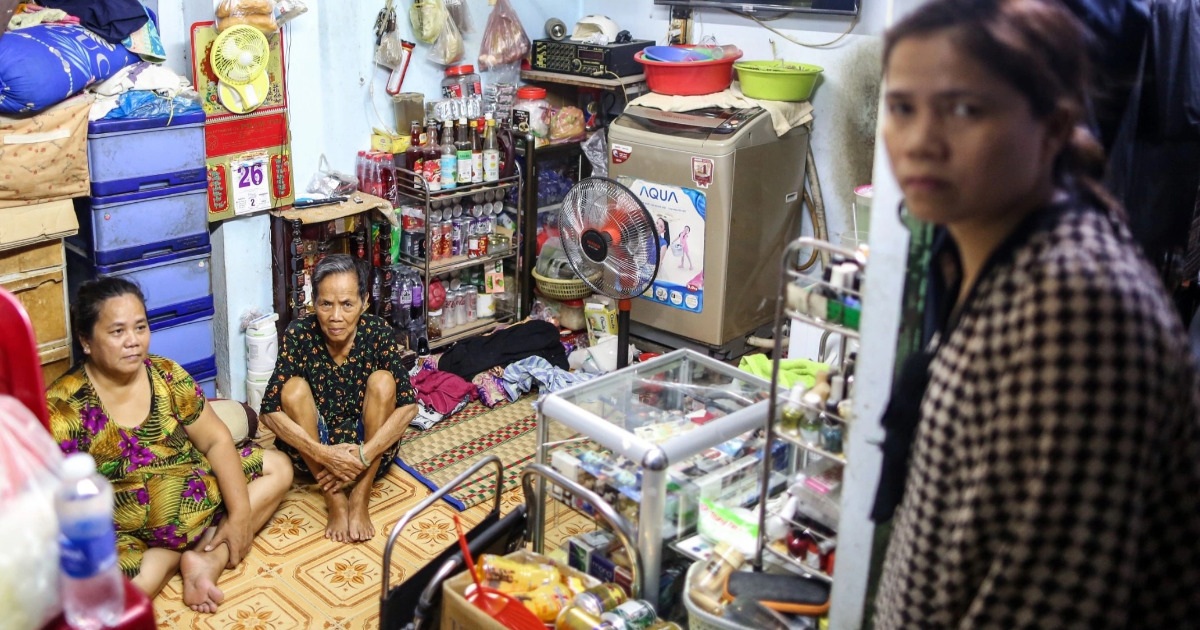“Do Not Give Money as It May Cause Children to Drop Out of School”
Recently, social media has been sharing images of a warning sign placed in the Nho Quế River area (Giàng Chu Phìn commune, Mèo Vạc district, Hà Giang province).
“We kindly ask visitors not to give food, drinks, or money to the elderly, children, and women… Giving these items may encourage children to drop out of school and discourage adults from working, negatively affecting tourism. Thank you!”
The warning on the sign is written in both Vietnamese and English, though the English section reportedly contains spelling errors.
Mr. Lê Thanh Hải, a representative of Nho Quế 1 Joint Stock Company, stated that the sign was installed in this area two years ago.
Recently, the company received feedback about the spelling mistakes in the English text and promptly removed the sign for corrections. Thanks to the typo issue, the advisory message gained significant public attention.
“The sign aims to advise and persuade locals and tourists not to give money, snacks, or drinks to children, women, or the elderly, as such actions might lead children to abandon schooling and adults to neglect work,” Mr. Hải explained.
The warning sign shared widely on social media (Photo: Social Media).
According to Mr. Hải, in the past, many children and elderly people living near the Nho Quế River would often come to ticket counters or ferry docks to beg for money. Each time tourists handed out 50,000–100,000 Vietnamese đồng, children stopped attending school and stayed around to earn money, forcing teachers to search for their missing students.
After approximately two years of installing the sign, combined with announcements via loudspeakers and reminders from staff, the situation of children and the elderly begging for money from tourists has significantly improved. At various times, local authorities have assigned officials to collaborate with employees of Nho Quế 1 Joint Stock Company to monitor and advise tourists.
Mr. Trần Đình Đồng, Chairman of the People’s Committee of Giàng Chu Phìn commune (Mèo Vạc district), confirmed that the district and Nho Quế 1 Joint Stock Company cooperated to install the advisory sign for tourists.
“Overall, the issue of children begging for money has decreased. This is a positive sign,” Mr. Đồng noted.
Every week, Giàng Chu Phìn commune works with schools to encourage children not to drop out, avoid begging on the streets, or accept gifts from tourists. After Tết (Lunar New Year), 97% of students returned to school, while the remainder were absent due to seasonal illnesses.
Through community meetings, local authorities emphasize the importance of focusing on work rather than sending children to beg for money or snacks from tourists, urging parents to ensure their children attend school regularly.
“We hope tourists will support us by not giving money to the children, helping local authorities end this issue,” the Chairman of Giàng Chu Phìn commune appealed.
Children Dancing Seductively for Money
During the recent Lunar New Year holiday, several young girls in Sa Pa were spotted wearing ethnic minority costumes, dancing provocatively to mimic viral social media trends in order to solicit money in central areas.
Mr. Đỗ Văn Tân, Vice Chairman of the Sa Pa Town People’s Committee, stated that taking advantage of the high influx of tourists during Tết, many individuals enticed children to dance on the streets for money.
According to Mr. Tân, the Sa Pa Town People’s Committee quickly instructed the Sa Pa Ward People’s Committee to implement measures to prevent children from being lured into performing seductive dances mimicking adults. Local authorities established a public order task force stationed at tourist spots to address these cases.
Young girls imitating adult dance moves to solicit money in the center of Sa Pa town (Screenshot from video).
Mr. Tân noted that over the years, local authorities, residents, and tourists have worked hard to curb the issue of children dropping out of school to earn money on the streets. By now, tourists are more aware and refrain from buying goods, handing out snacks, or giving money to children.
At public places, including restaurants and hotels, signs are posted advising against purchasing items from or giving money to children, street vendors, or beggars.
“The problem of harassment and soliciting money from tourists has nearly ended, but new tactics have emerged, such as enticing children to dance for money despite our prohibition of spontaneous performances for solicitation,” Mr. Tân said.
Previously, the Sa Pa Town People’s Committee gathered nearly 100 children and elderly members of ethnic minorities at Cát Cát village for performances, providing them with compensation. This approach helps reduce vending and begging while offering children additional income.
Authorities also encourage parents not to let their children dance for money and allow registration for livelihood needs (vocational training, job placement, loans for production development, stable selling locations, etc.).



